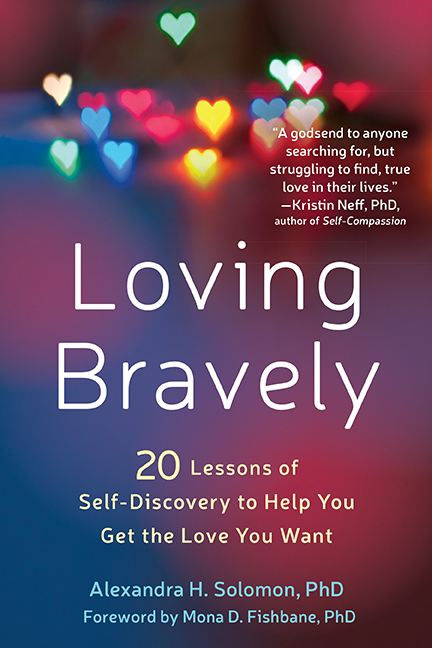I teach marriage and family therapy graduate students at Northwestern University, and I start my course with a 10,000-foot overview of the history and study of intimate relationships. Year after year, I am struck by the aliveness of love. While the desire to love and to be loved is woven into our DNA, our intimate relationships—the crucibles within which love is created and maintained—are embedded within our larger social and cultural contexts.
How we show romantic love as a culture is changing rapidly. People are getting married at an older age, and less people are getting married at all. Same-sex marriage has become legal in all 50 states. Nontraditional forms of coupling including sexual non-monogamy are becoming more mainstream. Online dating has exploded in popularity. That’s a lot of change in a little time. So how do we redefine what a happy and healthy intimate relationship looks like in this modern era?
Living and loving with a commitment to relational self-awareness means being willing to ask yourself questions like:
- What did I learn about love when I was growing up? How do my relationships with the people who raised me shape who I am in my intimate relationships?
- What do I believe about the nature of romantic love? How does that shape who I am in my intimate relationships?
- How do I relate to my emotions? How does that shape who I am in my intimate relationships?
- How can I know when I have become lost from myself? How can I find my way back to a place that is authentic and whole?
My desire to respond to these questions led me to write a book, Loving Bravely, which is about who we need to be in order to thrive in love. We need to be self-aware. Specifically, we need relational self-awareness, a deep and broad understanding of what we bring into our romantic relationships. Relational self-awareness is not a one-time life review. It’s an ongoing commitment to the work of turning your attention inward in order to seek, understand, and manage all of what love inevitably stirs within you, bringing that which is unconscious, hidden, and unnamed into the light of day. Consciousness facilitates choice, so establishing and maintaining a curious and reflective stance reduces the risk of repeating old and worn out patterns that do not serve you.
Understanding who you are and what you bring to the table lays the foundation for loving someone else. Why? Because building an intimate relationship is like shaking a snow globe. Stuff gets stirred up in you—stuff you didn’t know existed, stuff that has been lying dormant for years, stuff you really would rather ignore. But your willingness to turn your attention inward and acknowledge the snowflakes that are swirling inside is what creates an amazing intimate relationship—a relationship that is safe enough and strong enough to weather the snow storms.
SEE ALSO: 5 Ways to Enhance Your Relationship–Online
The modern landscape of love is complex. The information age has us running the risk of drowning out our own voice in the omnipresent opinions and perspectives of others. At the same time, what we need and expect from our romantic relationships is more nuanced than at any other time in our history. Relational self-awareness, therefore, is mandatory, not optional, in order to create romantic relationships in which both partners feel happy, healthy, and empowered.
 Alexandra H. Solomon, PhD, is staff clinical psychologist, member of the teaching faculty in the marriage and family therapy graduate program, and clinical assistant professor of psychology at The Family Institute at Northwestern University.
Alexandra H. Solomon, PhD, is staff clinical psychologist, member of the teaching faculty in the marriage and family therapy graduate program, and clinical assistant professor of psychology at The Family Institute at Northwestern University.



 2024 Peace Playbook: 3 Tactics to Avoid Clashes with Your Partner
2024 Peace Playbook: 3 Tactics to Avoid Clashes with Your Partner